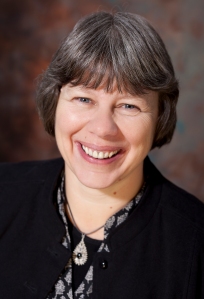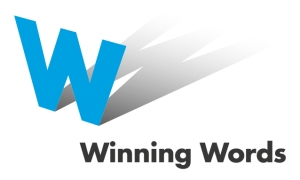
As the judges are making their final decisions about the winning poem from the fifty entered for the Winning Words Open Poetry Competition, I thought you might like to read some of those shortlisted and decide for yourself which to commend or recommend.
Entries came from poets aged 11-93 from across the North East and as far away as Tewkesbury. T
The competition brief was to write a poem inspired by the best and worst of times in 2012. Entries fell into landscape, political/economic commentary, health, life cycles/journeys, transitions and miscellaneous.
The following are in no particular order. I hope you enjoy reading them and look forward to receiving your comments.
One day like this a year… by Lesley Chapman, Askrigg, North Yorkshire
A landscape huge with buttock-bottomed fells,
A jetstream crossing cerulean blue.
November’s colours, dun and grey dispelled,
The scarlet, gold and copper leaves glow through.
The limestone walls dividing, timeless, proud;
The raddled tups assertive in their field.
The autumn light and streaks of wispy cloud,
The ash and chestnut tracery revealed.
Just after three the light begins to fade
And flat matt shades steal back across the land.
The wilting fronds of bracken, bronzed and frayed,
Once strong, will not now winter’s frosts withstand.
My memory will draw on this someday,
And so I write a love song for today.
Bestime Werstime by Meg Peacocke, Barnard Castle
My Big Granna tel me
bout twelf of Centry
bein firstes year an last.
Evrythin gon rong.
Most peepul out of it I dont
no how it happen.
Cum sweepin mitygod wave
that a story they tel
or hol world shakin
fal everythin away
but I thinks maybe bom
or poisn water.
My Big Granna tel me
best story bout that Boy
that Ol Man Ikky Rus make Wing.
He fly too happy.
Sun dont like it. Burn im up.
I like that story
but al them broken cities
they say I have never seen em
an al them hi smasht catchers
wot was they catchin? We don go near.
We live hantermouth. That Mity
dont help us. Maybe he gon.
An yu stil see them bones
if yu goes off but we
we clears em off our patch.
My Granda wer stil smal
he never like it al them
laffin wite heads wi holes.
But the Big Granda
the Biggest Man he tel em
Cum on cos we bin saved.
We gotta mak the most.
That how they clear us patch.
But sum of us we speshul
us wuns wi curlin arms an legs
we lukky we dont werk
dont do no fitin.
We startin Books agen
seein them old wuns al burnd up.
We ritin Histry. Meanin
best an wert wot happen
before enywun no. We say
In The Beginnin was Werds
but most of them peepul dont lern em
cos they wos playin Games
an so them Werds is lost.
Sum peepel tels
That wer the werst that twelf of year
cos most al gon but this wun
this me I ses Be happy
cos that twelf year the best.
Evrythin chanj. Us modern lyf begin.
Barney by Linda Conroy, Gilling West, Richmond,North Yorkshire
Pondering old stones from Norman times,
Fresh Teesdale air filled my lungs as I walked down The Bank.
Past ‘Antiques and Art’ – reminders of history as
Ionic columns and medieval faces looked down on me.
Through the best of times and the worst, workers had come
From yards and gates and alleyways to earn their daily bread.
As clogs clattered on cobbles, nimble fingers spun the yarn,
Looms rattled and shuttles flew.
Here the Tees that fed the mill, flowing ever seaward
Whilst skimming stones skip over ripples.
The Great Grey Barn by Anne Dauber, Forest in Teesdale, Barnard Castle
The great grey barn where the cows once lived
lies empty now.
Straw abandoned like
an unmade bed,
the hollow which was, for those blackened months, their Winter womb
lies cold.
I passed your barn
every day and saw your bovine stare,
snug within the parameters of your stone house,
high pillows of dense packed snow.
Monochrome scene from the window,
hills creased by rocks
full stopping the landscape.
My eyes rest on the hush and linger.
Desolate, dank. Lie still. No rush.
But the Winter comes and goes, as it pleases.
High on the hills now
dawdling away the afternoon
their great backsides
sodden, slapped
with the soil from a sepia Winter.
Your faces staring back through the grills on the broad gate
crushing the cud, your insolent eyes watching me shiver.
Now, I idly watch you from my kitchen window
while you come to visit, calf in tow,
eyes wide with looking at
the machinery of my life
and all that I need, just to be able to eat.
While you chew in my face,
rubbing it in.
The nettles around your hooves flattened
as you tread between
the saucers of marsh marigold.
I am glad.
My 2012 by Rachel Todd, Barnard Castle
The exciting London Olympics,
The Queens Diamond Jubilee;
My mums 40th birthday,
Trick or treating at Halloween,
It was the best of times.
The Olympic torch coming through the town,
While I’m away in France.
It was the best of times, it was the worst of times.
Then there’s Christmas,
and my 13th birthday,
And my mums 40th
If the world doesn’t end.
The Apocalypse,
The credit crunch,
The Costa Concordia,
It was the worst of times.
And to top it all off,
School tests,
Homework,
And then the new school year.
2012;
It was the best of times, it was the worst of times.
Best of Times, Worst of Times by Jackie Fallows, South Otterington, Northallerton
Freedom to wander the world with my fingers
but what can I trust?
Freedom to chatter with thousands of people
but contact is lost;
Freedom to soak in some glorious sunshine
but crops die of thirst;
Freedom to travel wherever I want to
but what is the cost?
Eyes sting at countryside cluttered with litter
yet spring still appears;
Ears cringe at sirens that shatter our cities
yet birdsong still soars;
Noses and mouths both constrict at pollution
yet lichen still spores;
Hands are bespattered by selfish behaviour
yet kindness endures.
Napoleon by Elizabeth Smith, Tewkesbury.
Women’s voices purl around the room.
In a tasselled salon, smiles lie.
The Emperor eats strawberries and ice.
Dice fall across the baize. Hussars flirt,
handsome in gold braid. Generals confer.
In long lit days of June to September
towns entangled in battle fall to the guns.
Flies swarm on wounds. Moscow is empty
flames ravel the sky, winter rains are cold.
Retreat is lonely. Ice red runnels mark the going.
Atlantic damp fillets my broadcloth. I sneeze.
Today a boat arrived, it brought The Times
I’m not forgotten England still remembers me.
The harbour guard calls the watch. The boat leaves.
Time Travel by Courtney Earl, Winston, Darlington
It was the best of times; it was the worst of times
Walking through a different dimension
Look there
What can you see?
Looking at a ghostly you and me
Hear them speak
What do they say?
Listen closely
Say a name
The name you hear
Is the town you seek?
It’s not hard to find
If you don’t peek
Smell the dust on the pebbles
Meat from the butchers shop
And smell the new rubber on the Clarks wellies
And yet off you pop
Taste the air on your lips
Keep sure don’t slip
On the taste of the sausage
In your sandwich
Touch the ketchup on your hand
And the people walk through
Soaking up the very rich band
I am in the town of Barnard Castle.



